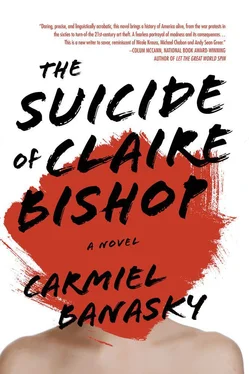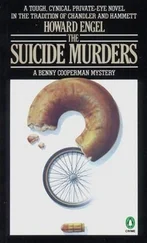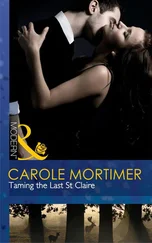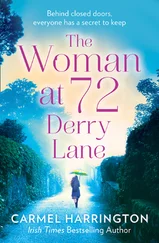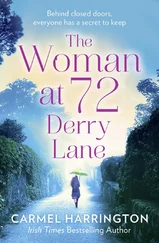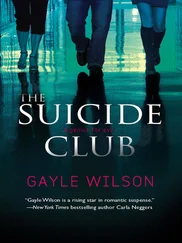“Where’d you get that there, miss?”
She nodded. He walked up to her, took the painting from her hands like she was a child or a mad woman, and leaned it against the dirty passenger door of the car. Claire stared down at the back of the frame. She did not feel any sense of surprise. What should she feel?
He was looking at her. “That artwork belongs to someone else, doesn’t it, miss?”
He turned her around, clipped the handcuffs on her loosely. The cold metal on her wrists was heavier than she’d expected. The swipe of his fingers, skin on skin. Her red, beaten palms. An old woman stopped in the middle of the sidewalk and stared.
A flash of wings. Birds going insane in the gutter. What was down there? So strong they rattled the metal grate. The sound of birds fighting, the sound of someone getting arrested. Replace eyeglasses, buy a present for Mary. The times you stare and think of birds. It’s all the time. It’s happening now. Again she heard the man yelling, Merry Christmas, Merry Christmas. Nearer now. She was not unstrung. She was not mad. It’s only the circumstance of the city smothering what’s important and there are too many people making too much noise and you can’t even hear the list of errands in your head replace the glasses or the list doesn’t make sense. She had taken what was rightfully hers.
He opened the back door and lowered her in. She watched him through the spotted window as he set the painting in the front seat, treating it with more respect than her. The painting faced the road; it could see what was coming. He walked around and got in beside it.
The first time she’d heard her own voice in so long:
“Aren’t you going to read me my rights?”
“No room in the precinct. Going to the Tombs.”
Claire didn’t know if he was talking to her or his radio. She hadn’t a clue where that was, the Tombs, and she was afraid to ask. Her tomb? They were driving now through Chinatown.
“We’re putting men in the women’s cell,” the cop said, catching her eye in the rearview mirror. “You might like that.” But his smirk disappeared and he said, “They’re not too scary. You’ll be safe.”
It was her own painting, that’s what she’d tell them. Why shouldn’t she have taken it back? All she would have to say is that it belonged to her, it was simply a misunderstanding.
Central Booking, stuffy and hot. She kept her eyes on her painting dangling from the cop’s hand. He didn’t even look at it. And if he did, he wouldn’t see its beauty.
They asked if she had any drugs on her and seemed not to believe her when she said no. They spread her bags and their contents across a desk. Her painting was being taken somewhere.
“What are you going to do with it?” Claire tried to sweeten her voice, but it came out shrill and childish.
“We’re calling Inspector Picasso,” the cop said. “He’s on it, don’t worry.”
She was taken down a cement hall and three flights of stairs. A frightening version of her basement and storage unit. An officer was walking behind, one hand on her shoulder, another on her back. She couldn’t see the face of the man who touched her, but she could feel the heat of his hand through her blouse. They’d taken her coat. She hoped it was draped over her canvas.
“Please. What about my painting?” she asked again.
“Ma’am. He’s lost his beret, he’ll be here soon.” On her back, she felt his hand shiver as he laughed at his own joke.
In the cell, gym mats were scattered on the floor, covered in half-eaten sandwiches. She saw the sandwiches before she saw the faces. Nine other people. But she didn’t register much more than a number, her mind jittery, bouncing to the next thing before landing completely on the first. There was an old pair of pants in the corner. Beside them, liquid that might have been urine or juice. The overwhelming smell of bleach made everything indistinguishable. There was one bed with a metal frame and a blue-and-white-striped mattress not an inch thicker than the gym mats.
A bench ran along the three walls. Claire sat down immediately, but the bench was so skinny she barely fit. She had to sit very straight, hands folded in her lap, legs closed, a well-to-do lady in a jail cell. She touched her scraped leg, her ripped stockings.
The nine faces hardly glanced at her. There was a pale, skeletal woman, wearing surprisingly few clothes for winter, sitting cross-legged on a mat, staring at her hands like something was wrong with them. A young boy rested his head on a girl’s lap. The boy was white and his girlfriend was black. This would have surprised Claire, and she would have hidden that surprise, had it been any other day. The boy’s eyes bulged and he melted as she stroked his hair. There was a love between them, neither over sixteen years old. A middle-aged woman cried softly in the corner. An old man, Russian maybe, slept on the bench. And four young men — three white and one black, all with dirty, disappointed faces — conversed quietly in the center of the cell. One had a broken nose, dried blood caked to the lower half of his face.
Claire desperately wanted to be invisible. If she didn’t hear them or see them, perhaps they wouldn’t see her. She breathed shallow through her mouth to block the stench. Out of the corner of her eye, she saw something scurry past, but when she looked, there was nothing. Her arms itched, and she imagined spiders and rats under the bench and in the walls. She felt she was going mad, and for a moment — oh she was so tired — for a moment she thought that was why she’d been locked away.
A sign on the wall read, water available upon request. Below that, another: sanitary napkins available upon request. Claire went to the bars and reached her arm through. She couldn’t be sure how long she stood there like that, waiting to be noticed. Her arm began to ache. The light was constant, the cruel desperation of ceaselessly buzzing fluorescent tubes.
Her favorite role that Avery had given her was for one of his silent films. She was a scantily clad bar wench who’d lost her lover in an unnamed war and who grieved by bombing City Hall. She ended up in jail, fell in love with another woman who had also lost everything to war, and together they broke free into a night without consequences.
This cell was not made of cardboard.
An officer finally approached.
“The sign said to ask for water,” she said.
“No cups,” he said, about to walk away. She pouted her lips, and could tell her lipstick had worn off long ago. After studying her face a moment, he said, “I’ll see what I can do.”
The officer never returned with water. When another guard walked by she reached out again and said, “I didn’t get to make a phone call.”
He laughed. She didn’t know what he found funny. “Sure, you can have a phone call. If you ask nice.”
“I can be nice,” she said. “But where’s the fun in that?”
He grinned then coughed to hide it. He called down the hall to someone. They yelled back and he said, “You’ll have to wait, sweetheart.”
When it was her turn, the same man — or was it the first? — unlocked the cell and she slid out, but it didn’t feel like she was out. Her cellmates stared after her.
“The rich lady wants to make a phone call,” the officer said to another.
Was it the Macy’s bag that had given them the impression she was wealthy? She didn’t bother correcting them. She dialed Mary’s number. The phone rang with an accusatory tone. It rang and rang. Where was Mary when she needed her? If only she could call Tomasz. It was entirely his fault this had happened. He hadn’t destroyed the painting. He had lied to her. She would call him and tell him he had to clean up his mess with his stupid, dirty rag.
Читать дальше
